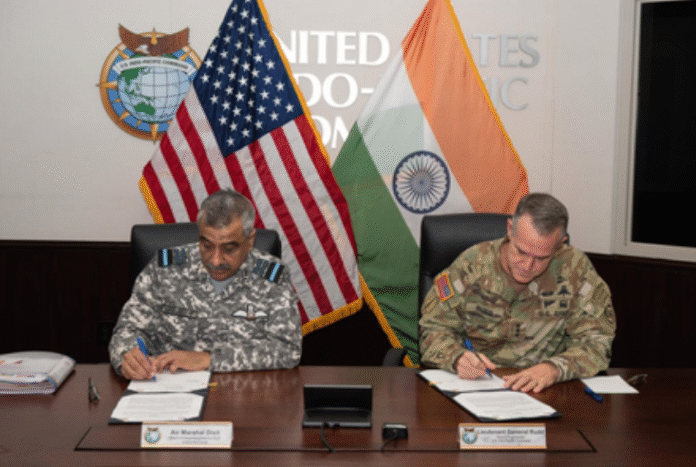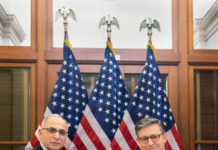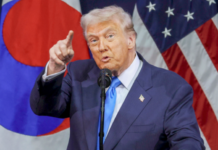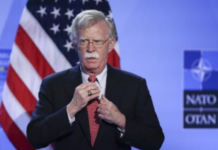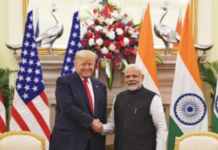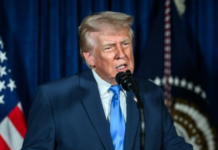Honolulu — India and the United States reaffirmed their commitment to deeper military cooperation, enhanced interoperability, and shared security objectives as senior defense officials concluded the 22nd India–U.S. Military Cooperation Group (MCG) meeting in Hawaii this week.
The two-day meeting, held November 3–4, was co-chaired by Air Marshal Ashutosh Dixit, India’s Chief of Integrated Defence Staff, and Lt. Gen. Joshua M. Rudd, Deputy Commander of the U.S. Indo-Pacific Command.
According to India’s Integrated Defence Staff, discussions advanced ongoing collaboration under the Framework for the India-U.S. Major Defence Partnership. The talks highlighted progress in areas such as artificial intelligence, cybersecurity, combat medical support, joint training, and operational logistics.
Both sides “reaffirmed commitment to enhanced interoperability and mutual security,” the headquarters noted following the meeting.
Senior military leaders also focused on maintaining a free, open, and secure Indo-Pacific region, underscoring the strategic importance of cooperation as regional challenges evolve.
The MCG serves as a key institutional platform for strengthening defense ties between the two nations. Last year’s edition was held in New Delhi and also emphasized training exchanges, defense industrial cooperation, and expanding joint preparedness for both conventional and hybrid threats.
Military collaboration between India and the United States has continued to grow over the years, most notably through joint exercises. In September, the 21st edition of Exercise Yudh Abhyas — one of the largest bilateral training exercises involving the Indian Army — took place at Fort Wainwright, Alaska. About 450 Indian troops trained alongside U.S. soldiers from the 11th Airborne Division in extreme cold weather conditions.
Yudh Abhyas, which began in 2002 as a small platoon exercise, has expanded to include large-scale maneuvers across varied terrains including high-altitude environments, deserts, and urban training zones.
“India conducts more military exercises with the United States than with any other country,” the Indian Embassy in Washington said earlier this year, noting that exercises such as Yudh Abhyas, Malabar, COPE India, Vajra Prahar, and Tiger Triumph are central to building operational trust and coordination.
Both nations have repeatedly stated that their defense partnership plays a vital role in supporting regional stability and maintaining peace and security across the Indo-Pacific. (Source: IANS)


